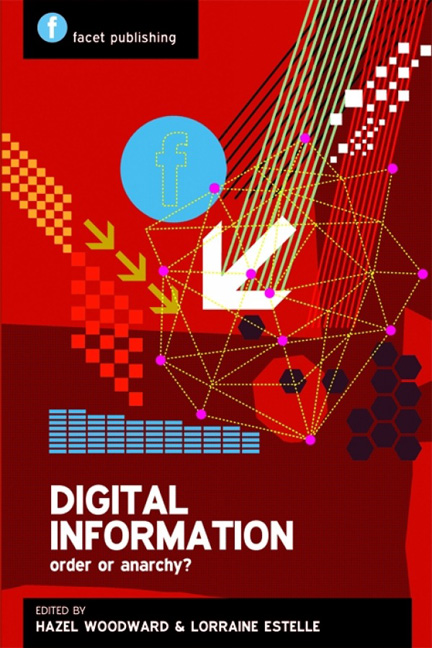Book contents
- Frontmatter
- Contents
- Acknowledgements
- Contributors
- Preface
- 1 Introduction: digital information, an overview of the landscape
- 2 Scholarly communications: the view from the library
- 3 Scholarly communications: the publisher's view
- 4 E-books and scholarly communication futures
- 5 Digitizing the past: next steps for public sector digitization
- 6 Resource discovery
- 7 Who owns the content in the digital environment?
- Index
Preface
Published online by Cambridge University Press: 08 June 2018
- Frontmatter
- Contents
- Acknowledgements
- Contributors
- Preface
- 1 Introduction: digital information, an overview of the landscape
- 2 Scholarly communications: the view from the library
- 3 Scholarly communications: the publisher's view
- 4 E-books and scholarly communication futures
- 5 Digitizing the past: next steps for public sector digitization
- 6 Resource discovery
- 7 Who owns the content in the digital environment?
- Index
Summary
We are delighted to have been given the opportunity of editing this book on the theme of ‘Digital Information: order or anarchy?’. In the early stages of preparation, when discussing the outline and selecting the contributors, we were anxious to ensure that we covered all the major aspects of the digital revolution that is taking place across our industry. Thus we not only chose contributors from a number of different countries to ensure the widest possible perspective, but we were also keen to include publishers, non-traditional information workers, and even a lawyer, in pursuit of our goal.
The theme of order and anarchy permeates the chapters. As editors we were intrigued by the possibilities (and uncertainties) of future developments in our digital universe and we wished to explore the potential impact on libraries, publishing companies and all the other players in the marketplace. Will the present relatively orderly system of scholarly communication survive into the future or will the possibilities that technology affords, create disruption and anarchy? And what is being done today that will help an orderly transfer to the future?
The chapters by Rick Anderson, Colin Steele and Ian Russell essentially focus on the process and evolution of scholarly communication in the digital age from their own individual perspectives. Anderson identifies three ‘crunch points’ for libraries and publishers: searching and finding information; library collections; and pricing. In a world where Google has effectively taken over the document-finding role from libraries, there is one area that it has not yet fully invaded (but is making some progress). That is the role of third-party broker for expensive high quality documents such as scholarly journals and monographs. But how will libraries respond as more and more scholarly material becomes easily searchable and increasingly freely available on the internet? The final crunch point is pricing and business models – a dilemma that many would maintain that has been around for decades. Anderson works through various future scenarios around these topics and points to essential mission change for academic and research libraries.
Information
- Type
- Chapter
- Information
- Digital InformationOrder or anarchy?, pp. xiii - xviPublisher: FacetPrint publication year: 2009
